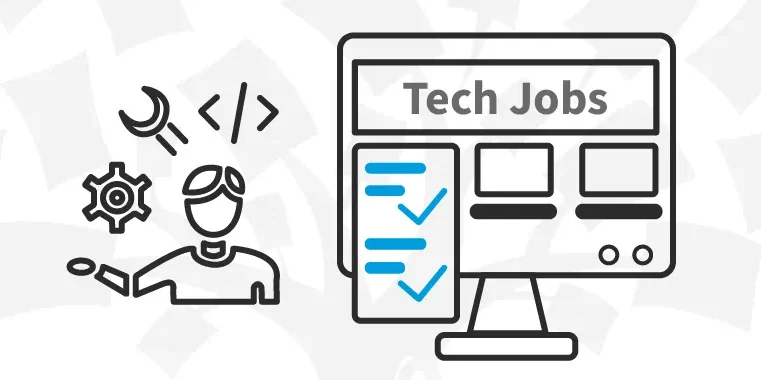The reality of tech jobs today is multifaceted and ever-evolving, shaped by rapid advancements in technology and changing industry dynamics. In today’s scenario the tech-jobs have taken a sharp turn in terms of many perspective.The notion of a “dream company” has seen a decline in popularity among people.

Why there is pendulum shift in Tech Jobs ?
- Evolving Technologies: Rapid advancements in technologies such as artificial intelligence, machine learning, cloud computing, and cybersecurity are reshaping job requirements. New skills and expertise are in demand, leading to shifts in the types of roles and specializations that companies prioritize.
- Remote Work Revolution: The COVID-19 pandemic accelerated the adoption of remote work, challenging traditional office-centric norms. Tech companies embraced remote and hybrid work models, expanding their talent pool beyond geographical boundaries and influencing how job roles are structured and performed.
- Demand for Digital Transformation: Organizations across sectors are prioritizing digital transformation to stay competitive and resilient. This has heightened the need for tech professionals who can lead initiatives in areas like digital strategy, software development, data analytics, and cybersecurity.
- Shift in Consumer Behavior: Changing consumer behaviors and expectations are driving companies to innovate rapidly. Tech jobs focused on user experience, digital marketing, e-commerce, and customer analytics are increasingly critical as businesses strive to meet evolving consumer needs.
- Focus on Diversity and Inclusion: There is a growing emphasis on creating diverse and inclusive workplaces within the tech industry. Companies are recognizing the importance of diverse perspectives and talents in driving innovation and problem-solving, leading to shifts in hiring practices and workplace culture.
- Ethical and Regulatory Considerations: Tech companies face increasing scrutiny regarding data privacy, cybersecurity practices, algorithmic bias, and ethical use of emerging technologies. Professionals in tech roles are expected to navigate these complex issues while upholding ethical standards and compliance with regulations.
- Global Economic Shifts: Economic factors, geopolitical events, and market trends influence the demand for tech jobs globally. Shifts in economic conditions can impact hiring trends, investment in technology infrastructure, and the overall growth trajectory of the tech industry.
Navigating Stress in the Ever-Evolving Landscape of Tech Jobs

The pendulum shift in tech jobs, driven by rapid technological advancements and evolving industry demands, is indeed creating stress for professionals in several ways:
- Skill Gap Challenges: As technology evolves, there is a constant demand for new skills and expertise. Tech professionals often feel pressured to continually upskill or reskill to remain competitive in the job market. For example, a software developer who specializes in a particular programming language may find their skills outdated as newer languages or frameworks gain prominence. This constant need to learn new technologies can create stress, particularly for those balancing work commitments with ongoing learning.
- Job Insecurity: The dynamic nature of the tech industry means that roles and job requirements can change rapidly. Companies may restructure teams, pivot their business models, or adopt new technologies, leading to job insecurity for tech professionals. For instance, the introduction of automation and artificial intelligence in certain roles may raise concerns about job redundancy or displacement.
- Workload and Burnout: Tech jobs often come with high-pressure environments and demanding workloads. The need to meet project deadlines, handle complex technical challenges, and keep up with fast-paced development cycles can contribute to burnout. For example, software engineers working in agile development teams may face tight timelines and frequent iterations, leading to stress and exhaustion.
- Ethical and Regulatory Pressures: Increasing scrutiny on ethical considerations and regulatory compliance adds another layer of stress for tech professionals. Issues such as data privacy violations, cybersecurity breaches, and algorithmic bias can have significant consequences for companies and individuals alike. Tech professionals responsible for developing or implementing technologies must navigate these ethical dilemmas while managing performance expectations.
- Remote Work Challenges: While remote work offers flexibility, it also presents unique challenges. Tech professionals may experience isolation, blurred work-life boundaries, and difficulties in collaborating effectively with team members. For example, remote software developers may struggle with communication gaps, impacting productivity and adding to their stress levels.
- Market Volatility and Economic Uncertainty: Tech jobs are influenced by broader economic trends and market volatility. Economic downturns, industry disruptions, or geopolitical events can impact job stability and career prospects. Tech professionals may feel stressed about job prospects during periods of economic uncertainty, particularly if their skills are tied to industries or technologies experiencing downturns.
- Pressure to Innovate and Perform: In a competitive industry focused on innovation, tech professionals may feel pressure to constantly innovate and deliver results. Startups and tech giants alike often emphasize a culture of innovation, challenging employees to push boundaries and develop groundbreaking solutions. This pressure to perform at high levels can contribute to stress and anxiety.
https://www.quora.com/What-is-the-reality-of-the-jobs-in-the-IT-sector

3 thoughts on “Reality of Tech Jobs”